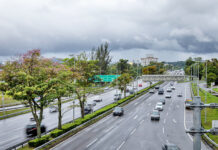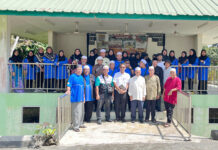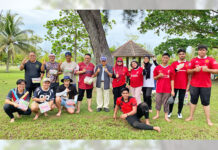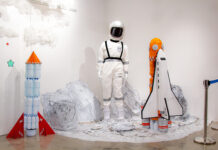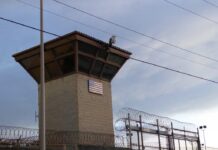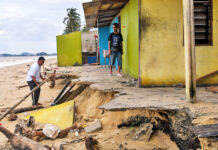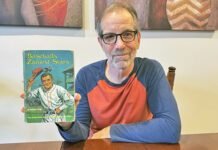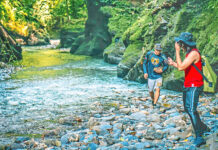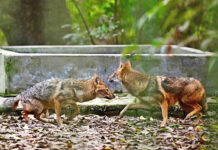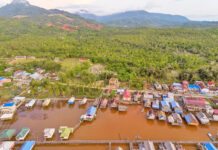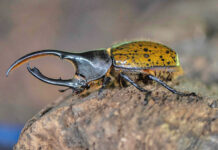THE WASHINGTON POST – People sometimes say science fiction basks in optimism for a better future, while fantasy is about nostalgia for an imaginary past. But this year’s most notable fantasy books worked to uncover historical crimes, while science fiction warned of coming evils.
The good news? The best sci-fi and fantasy books of 2023 will give you hope and strength in the toughest times.
1. THE DEEP SKY
BY YUME KITASEI
This was a year of strong debuts, but Kitasei’s murder mystery in space is a mind-blowing performance even by those standards. The Deep Sky makes even familiar space adventure tropes brand new, including desperate manoeuvers, an unreliable Artificial Intelligence (AI), a malfunctioning virtual-reality system and a multinational crew whose members have secret agendas of their own. But what sticks with me is Kitasei’s thoughtful exploration of friendship, identity and a fractured mother-daughter relationship.
2. SILVER NITRATE
BY SILVIA MORENO-GARCIA
Movies enchant in more ways than one in this chilling tale of film nerds colliding with occultists who seek a special film with arcane powers. Moreno-Garcia reinvents herself from book to book, which makes each a unique treat, but this time around her protagonists are among her most compelling. Silver Nitrate hits especially hard when it explores colourism in both mysticism and Mexican society, and the need to survive by creating your own private language.


3. ROUGE
BY MONA AWAD
Belle’s snow-white mother dies, leaving her half-Egyptian daughter with a house full of weird beauty products and a connection to an even weirder beauty cult. Rouge could have been a polemic against the beauty-industrial complex, but instead it delves fearlessly into trauma, internalised self-loathing and the dangers of falling for a movie star – in this case, one who visits through a magic mirror. At the core of it all, Awad finds an astonishing tenderness.
4. WHITE CAT, BLACK DOG
BY KELLY LINK
When present-day writers retell old fairy tales, it can come across as mere annotation, but Link’s revamped classics feel brand new. Her characters navigate bizarre situations with arbitrary rules, but also find love and kindness in the oddest places. There’s a literal trip to hell and – much worse – a never-ending layover caused by a series of cancelled flights. Plus a post-apocalyptic travelling band. By turns unsettling and delightful, White Cat, Black Dog captures the essential poetry at the heart of fables.
5. THE WATER OUTLAWS
BY SL HUANG
Speaking of retellings of classics, Huang’s epic saga of martial arts and insurrection is inspired by the seminal Chinese novel Water Margin. Huang wrote action that feels both kinetic and spiritual. And her community of rebel bandits strikes up a fascinating debate about how to save a country from itself. Tearing myself away from this addictive book was one of the hardest things I’ve done lately.
6. THE GREAT TRANSITION
BY NICK FULLER GOOGINS
In a year full of climate stories, Googins’s quasi-thriller was among the most emotionally compelling and humane. In the near future, teenage Emi attends the commemoration of the anniversary of our victory over climate change, but there’s a terrorist attack and her mother goes missing. Emi soon discovers that the fight to save the planet hasn’t really ended. Through Emi’s parents, Googins shows the different ways people process trauma and just how much the fragile salvation of our world cost them.
7. HE WHO DROWNED THE WORLD
BY SHELLEY PARKER-CHAN
This sequel resolves every storyline from Parker-Chan’s She Who Became the Sun (2021) satisfyingly, while also answering all the thematic questions about destiny, greatness and mercy the first volume posed. A chronicle of the founding of the Ming Dynasty in which Zhu Yuanzhang, the first Ming emperor, was secretly born a woman, Parker-Chan’s duology foregrounds characters whose masculinity is called into question. It all builds to an ending that is startling but also utterly perfect.
8. TO SHAPE A DRAGON’S BREATH
BY MONIQUILL BLACKGOOSE
This remains my favourite book of the year. An Indigenous girl, Anequs, becomes the first person on Masquapaug island to hatch a dragon’s egg in generations, which means she’s forced to attend the dragon-rider academy run by the Anglish colonisers. If Anequs can’t learn to behave like a proper Anglish girl, her adorable baby dragon will be put to death. A fascinating alternate history of North American colonisation and a nuanced investigation of who gets left out of “civilisation” form a worthy backdrop to a coming-of-age story that is cozy and hair-raising in equal measure. – Charlie Jane Anders

